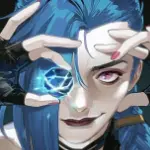I’m only slightly ashamed to admit that I was one of the many Doctor Who obsessed teenagers of the early 2010s. For as painfully cringy the fandom was at that time, at least I could be proud to be a fan of a show which was, at its heart, about being kind, intelligent, and brave. Unfortunately, my love for the show quickly died when Russel T. Davies decided to step away as showrunner so that Steven Moffat could take his place. To this day, I consider the change to be an utter tragedy, so knowing that Davies is coming back is amazing news. Now, finally, we might get back everything we lost with Moffat.
I want to be clear that I don’t think Moffat is a bad showrunner or writer, and I know that he isn’t responsible for the entire post-Davies era either. Still, from my perspective, he marked the end of my love of Doctor Who. To understand why, you just have to compare his first episode, “The Eleventh Hour”, to Davies’, “Rose”. “Rose” is and always will be a masterpiece. It was undertaking a huge task - bringing Doctor Who back to an audience after it ended 16 years earlier. Davies does an amazing job, though, choosing to frame the story not from the perspective of the Doctor but rather from his soon-to-be companion Rose. By doing this, the audience is introduced to sci-fi concepts piece by piece through the perspective of someone who knows nothing, and when we don’t understand, we can still feel at ease knowing that Rose doesn’t understand either. There are still some details that first-time viewers might not catch, like the Doctor’s ability to regenerate, but it doesn’t matter. They’re treats for old fans, and anyone new can just ignore it and learn along the way.

Moffat’s job with "The Eleventh Hour" was comparatively easy. As the show already had a few successful seasons and had become a cultural staple again before he took over, he just had to do some light exposition and get on with it. He manages this well enough, though some of the explanations are a bit too rushed and unclear for newcomers. Where the episode and Moffat’s whole era fail for me, though, is in their characterisations. The 11th Doctor, played by Matt Smith, is shown to be a mysterious man, larger-than-life and honestly probably better than you. From the start it’s made clear that he is the hero and his companion, Amy, is meant to basically listen to and obey him. Amy is shown to be rather passive, too. She’s “the girl who waited”, and at the climax of the episode, she’s asleep, only helping save the day by dreaming the way the Doctor tells her to.
There was certainly potential for the pair - Amy as a child forced to grow up too soon and the Doctor bringing her along to reclaim her joy and hope. In the end, though, we’re left wondering why the Doctor chooses to bring along someone who doesn’t seem to bring much to the table besides a dangerous mystery, one the Doctor could surely solve on his own.

The characterisations in “Rose” are entirely different. In it, we see the 9th Doctor quite grumpy and standoffish, but instead of coming off as narcissistic and impatient like with the 11th Doctor, we slowly come to realise how damaged the Doctor is. Rose notices that he’s suffering too, and we start to get the sense that the Doctor is a lonely man carrying the tremendous burden of protecting the entire Earth. He’s not some incredible alien madman - instead, he’s very human despite his extraterrestrial origins. His pairing with Rose makes a lot more sense than the 11th Doctor's pairing with Amy, too. There’s nothing special about Rose, no mystery to be solved or danger to be contained. Instead, it’s obvious that he chooses her because she is what he needs. She’s brave and resourceful, but more importantly, she notices the obvious things the Doctor doesn’t and reminds him to be human and feeling. He is saving her from a dull life and she is saving him from an emotionless one, a story so simple it could happen to anyone.

Truly, that’s what made Davies’ run on Doctor Who so special : he wrote smaller, more human stories. Moffat is cinematic, and it shows in everything from the stories and characters to the angles and the music. This pays off in short-run series like Sherlock (if we ignore the last season) and stellar one-off episodes like “Blink”, but when it’s extended as long as a full season of Doctor Who, it gets harder and harder to raise the stakes and build tension. Davies, on the other hand, lets his stories be small sometimes and builds slowly to grand mysteries, giving himself the chance to tell more intimate stories.
That humanity is what I’m hoping Davies is able to bring back as he returns to Doctor Who. Whether or not he’ll be able to achieve it is another question; bringing back David Tennant as the 10th Doctor (my favourite) is a risky move that might pull him back to a bygone era, leading him to try to revive something that ended in 2010 rather than create something new for 2023. Still, he’s recognised as an extraordinary talent in Britain and has been working in television since 1985, so I remain hopeful. In any case, we can look forward to the 60th anniversary to find out.








Share your thoughts!
Be the first to start the conversation.